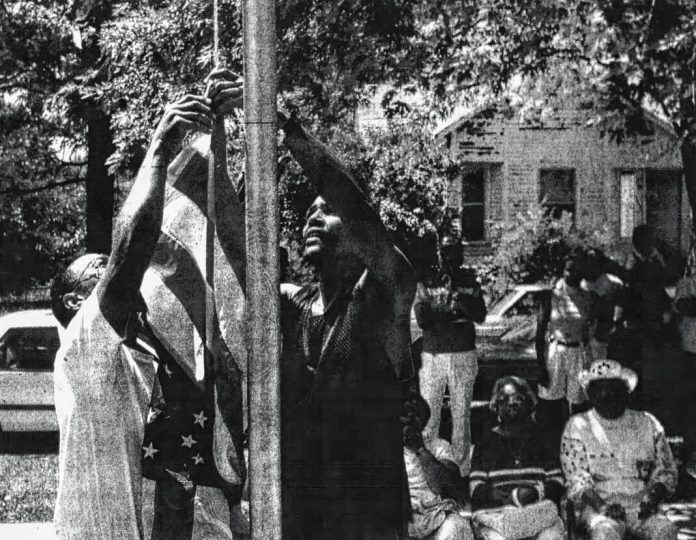News from around Johnson County as reported on July 6 in the pages of the Daily Journal and the Franklin Evening Star from the last 111 years.
On this day in 1992, the main story on the front page of the Daily Journal was about a picnic for Franklin’s Black families at the former Booker T. Washington School.
The Fourth of July scene at the Palmer Community Center (now the Booker T. Washington Community Center) looked typical of family reunions and picnics across Johnson County for the holiday. But the tie that brought them together was unique — the 125 Black men, women and children were linked by heritage as minorities from Franklin.
“When you live in a place as a minority, you band together — you have to. It’s called survival,” said Phillip Dunn.
Dunn was the co-founder of the picnic, held every three years since 1980. A resident of Colorado and a Franklin native, he organized the event as a way to stay in touch with Blacks who never left the city.
On July 4, 1992, Dunn sat at a picnic table taking a brief rest from the grill. The air was filled with the smell of barbecue ribs, the laughter of children playing in the park and the chatter of parents reminiscing and catching up.
But when the conversation turned to recent events, topics such as the Rodney King verdict took on a special significance.
The acquittal of Los Angeles police officers for beating the Black man and the riots that followed had brought race relations again to the nation’s attention.
It caused Dunn to think about what it meant to be a minority in the United States, and the future for his two young children.
“We can regress faster than we progress, and that’s what happened in the King case,” Dunn said.
—
Other memorable Johnson County stories from this day
2012
Staff at the Franklin Library Branch were in shock after they saw that a concrete block the size of a softball had smashed a large hole through a back window.
1983
Union carpenters were picketing the Johnson County Courthouse, objecting to the use of non-union workers in the building’s renovation.
1943
Despite sugar being rationed amid World War II, there was almost as much sugar around in wartime as there was during peacetime.





